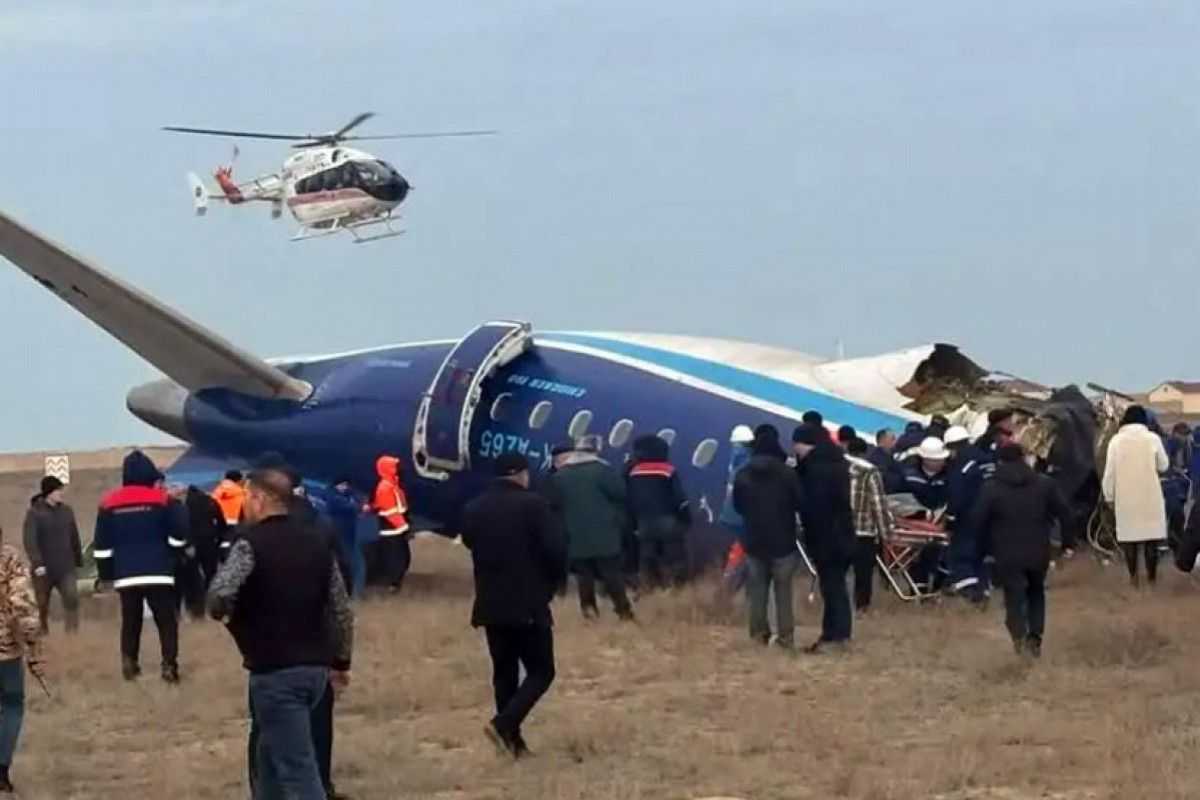
Three Nagorno-Karabakh police officers and two Azerbaijani soldiers have died in an armed clash in Nagorno-Karabakh.
The incident took place on Sunday morning on a dirt road close to the Lachin Corridor, in an area not under Azerbaijan’s control. It centred around a small minibus.
Azerbaijani authorities said the bus was transporting weapons from Armenia to Stepanakert, while the authorities in Nagorno-Karabakh said it was on a regular police patrol.
One Nagorno-Karabakh police officer remains in hospital.
Azerbaijan’s Defence Ministry issued a statement shortly after the incident, claiming that they had received information that military equipment, ammunition, and personnel were on board the minibus. Azerbaijan considers Nagorno-Karabakh to be territory of Azerbaijan temporarily under the control of Russian peacekeeping forces.
‘An attempt was made to stop and check the vehicles carrying out illegal military transport’, reads the statement. ‘Shots were fired from the opposite side, and as a result of the shooting, there were casualties and injuries from both sides’.
Azerbaijan’s Foreign Ministry also alleged that the bus was travelling via a ‘dirt road’, bypassing the Lachin Corridor, which has been blocked since 12 December.
Nagorno-Karabakh’s Foreign Ministry categorically denied the Azerbaijani allegations, alleging that a ‘sabotage group’ from Azerbaijan’s armed forces was responsible for the attack.
It added that Azerbaijani forces had violated the ceasefire on 2 March and in the early hours of 3 March, and suggested that Azerbaijan was ‘seeking to initiate an escalation of tension’.
‘It should be noted that these attacks were carried out immediately after the talks on unblocking the Lachin Corridor held between representatives of Artsakh [Nagorno-Karabakh] and Azerbaijan on 1 March. Through its actions, Baku openly demonstrates its rejection of negotiations as a means of finding solutions to any issues’, stated the Nagorno-Karabakh Foreign Ministry.
Both Armenia and Nagorno-Karabakh’s foreign ministries described the incident as part of an attempt by Azerbaijan to ‘ethnically cleanse’ Nagorno-Karabakh.
Armenia’s Foreign Ministry additionally stated that the minibus carried only four police officers and a service pistol, describing Azerbaijan’s version of events as ‘absurd’.
‘The actions of the Azerbaijani forces cannot be described as anything other than terrorism’, the statement said. ‘The facts prove that this provocation was pre-planned and instructed by the highest leadership of Azerbaijan.’
‘Under current circumstances, sending an international fact-finding mission to the Lachin Corridor and Nagorno-Karabakh becomes a vital necessity’, the statement concluded.
The Azerbaijani authorities, however, laid the blame for the incident with Armenia’s government.
‘In order to prevent such military provocations, Azerbaijan demands the implementation of the Tripartite Declaration, an end to the transportation of illegal weapons and ammunition, personnel, and mines from Armenia, and the immediate withdrawal of Armenian armed forces from the territories of Azerbaijan’, the Foreign Ministry stated.
On 22 February, the UN International Court of Justice rejected a request from Baku to order Armenia to stop planting landmines or sponsoring their planting in ‘areas to which Azerbaijani civilians will return in Azerbaijan’s territory’.
Azerbaijan’s Foreign Ministry added that the incident ‘proved the necessity’ of introducing border control mechanisms between Azerbaijan and Armenia. In recent weeks, Azerbaijan has been demanding the establishment of Azerbaijani checkpoints on the Lachin corridor.
On Monday, the European Union External Action Service published a statement, announcing that it ‘deplores’ the outbreak of violence.
‘The circumstances surrounding this deadly incident need to be fully investigated’, the statement continued. ‘We urge all stakeholders to show restraint in order to prevent any further actions which could further undermine regional stability and threaten the peace process.’
For ease of reading, we choose not to use qualifiers such as ‘de facto’, ‘unrecognised’, or ‘partially recognised’ when discussing institutions or political positions within Abkhazia, Nagorno-Karabakh, and South Ossetia. This does not imply a position on their status.






